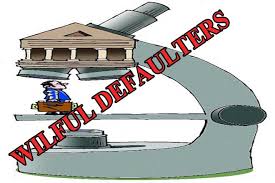 Private sector players could be in for a Rs 1.5 lakh crore revenue bonanza by 2020 if the government accepts the telecom regulator’s proposals on implementing the national broadband project, BharatNet. They, however, are sceptical about potential challenges over right of way (RoW) to lay cables and want these to be ironed out by the Department of Telecommunications (DoT) to ensure their active participation.
Private sector players could be in for a Rs 1.5 lakh crore revenue bonanza by 2020 if the government accepts the telecom regulator’s proposals on implementing the national broadband project, BharatNet. They, however, are sceptical about potential challenges over right of way (RoW) to lay cables and want these to be ironed out by the Department of Telecommunications (DoT) to ensure their active participation.
“If Trai’s (Telecom Regulatory Authority of India) recommendations are implemented, and the government ensures free RoW to private sector participants, as suggested by the telecom regulator, the revenue potential from broadband services could attain very significant levels by 2020, and be in the Rs 1-1.5 lakh crore range,” Broadband India Forum (BIF) president TV Ramachandran told ET. This estimate though could very easily be exceeded, given the huge potential these services have, said Ramachandran.
The BIF represents companies such as Airtel, Vodafone, Telenor, RCom, Qualcomm, Ericsson, Intel, Marvell, UTStarcom and BSNL. Hemant Joshi, partner at Deloitte, Haskins & Sells, agreed that the revenue potential could be staggering if RoW can be done away with, since it is the biggest hurdle and the costliest part of laying optical fibre across India.
“If the RoW challenge is addressed, BharatNet as India’s principal broadband backbone, can be a potential GDP multiplier, equivalent to 2-4 times the $18 billion that is proposed to be invested in the Digital India project,” said Joshi. This, he said, effectively means BharatNet can be a trigger for adding between $36 billion and $72 billion to India’s GDP in coming years, although the pace of the multiplier effect would hinge on the speed of national broadband network rollout.
In its recent recommendations on speeding up the Rs 74,000 crore BharatNet project, Trai had listed RoW as a factor considered to be a major risk by the private sector, and had urged DoT to pave the way for “a guaranteed provision of free RoW as a necessary and non-negotiable precondition for successful deployment of the national broadband project”.
Bharat-Net is being implemented as the main high-speed Internet backbone for delivering government services to the common man under Digital India initiative. Search giant Google, which had evinced interest in providing inexpensive Internet access across India, called for steps to boost broadband speeds of existing consumers.
Source: Economic Times

